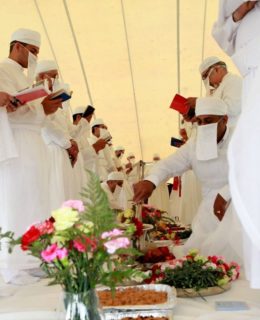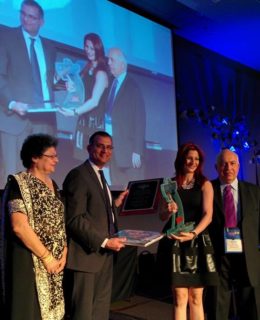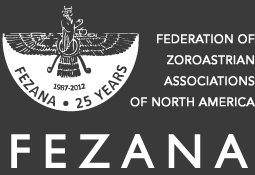FEZANA, with other faith-based NGOs, participated in a parallel event on the occasion of the High-Level Political Forum (HLPF), on the Sustainable Development Goals of the United Nations.
The meeting, “A Shift in Mindset: Faith-Based Solutions to Climate Action Obstacles in implementing Agenda 2030 and the Paris Agreement at the Grassroots” took place on Monday, July 13th, 2020.

FEZANA was represented by Afreed Mistry, FEZANA’s Main Representative to the United Nations, from Toronto, Canada. She brings years of experience to the position having attended numerous sessions since 2004 at the UN Headquarters in New York, and mentored numerous Zarathushti youth on their journey to become world citizens. Afreed currently serves as the Executive Vice-President of the Zoroastrian Society of Ontario. Professionally she is a Network Design Specialist at the Bank of Montreal.
At the HLPF on Sustainable Development, in 2018, FEZANA was represented by a robust team of seven participants. An alumnus from that UN FEZANA representation, Ervad Karl Desai, originally from Sydney, Australia, currently residing in London, UK, was the moderator for the first FEZANA Talks titled, “Can Zoroastrianism Solve Climate Change?” held on July 1st, 2020.
This new initiative, FEZANA TALKS facilitated by the newly elected executive, promises to provide a broad platform for Zarathushtis to share their thoughts in wider civil society on a range of diverse topics that impacts our global community.
The panel of speakers, on July 1st, 2020, Farzad Sunavala, Hanoz Suntoke, Karl Desai, Reanna Unwalla and Shahan Engineer shared their personal experiences with Climate Change amid the COVID-19 crisis in an interactive dialogue with 50 attendees.
Some takeaways from the discussion:
- What is your current carbon footprint? Take the assessment: https://footprint.wwf.org.uk/#/
- Little changes each person chooses to make can add up. Some suggestions: do not waste water or electricity, carpool or use public transportation when you can, use reusable shopping bags, don’t buy plastic water bottles, eliminate all single use plastics.
- Recycling plastic or cloth is not easy. It takes more energy to recycle than to create new articles from raw materials. So eliminating or reducing the use of an item makes for a more pronounced impact. Hence, in order of priority: Reduce, Reuse and then Recycle.
- Dokhmenashini is not practiced outside of India. Cremation has an adverse effect on energy consumption and releases chemicals and additional pollutants. Hence, consider burial in a shroud instead of a coffin. An innovative solution mentioned: one can be buried in a biodegradable egg shell that is connected to the growth of a new tree. To read more: https://cnn.it/2O65RmM
- The Zoroastrian Society of Ontario has switched to using plant based cutlery and cups along with paper plates. So all the food waste, cutlery and cups are put in a compost bin and paper plates in the recycling bin. This way there is no “garbage” created. All Zoroastrian Associations can learn from this example and consider switching to biodegradable essentials to become more environmentally friendly, first at their places of congregational worship, and then in their own homes.
- In Canada, milk bags cannot be recycled, so Armaity Anandasagar from OZCF (Girl Guide Leader) has been training the Girl Guides in upcycling them and making sleeping mats for developing countries. The OZCF Seniors, OZCF Scouts and some companies have also made these sleeping mats a few times.
- Being at home all day with COVID-19, individuals are using fewer clothes; wearing the same clothes over again. Do we really need so many clothes stashed in our wardrobes?
Look out for a report from the HPLF 2020 in an upcoming FEZANA Publication.




